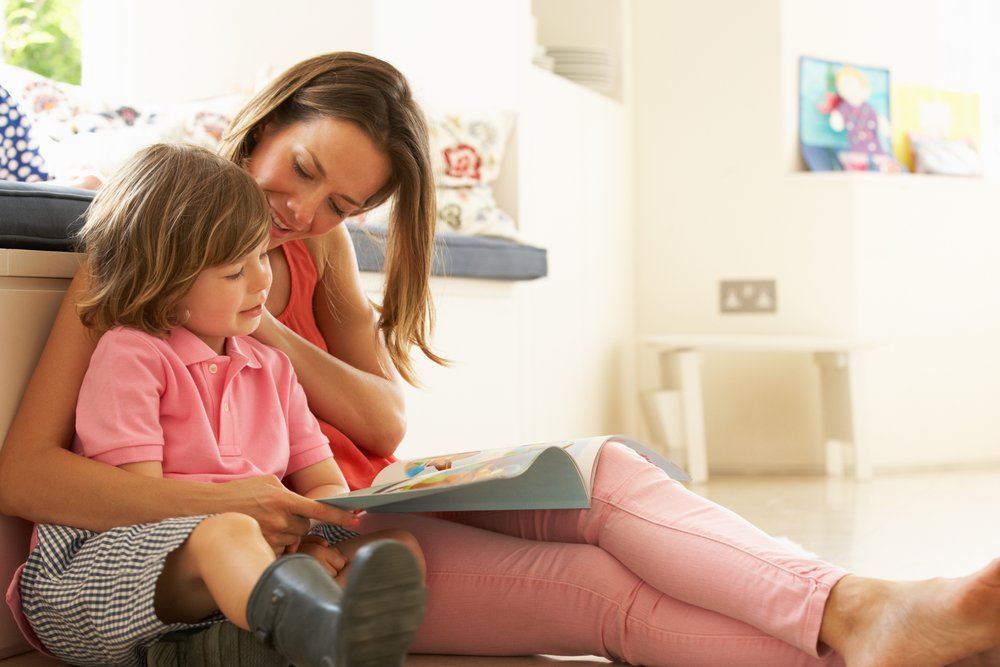How to Talk to Your Kids About Divorce: The Fine Line Between Honesty and Oversharing

When the time comes to talk with your kids about divorce, it’s important to carefully consider what you’ll say and how you’ll say it. You’re probably aware that it will be a sensitive and emotional conversation. How do you address your kids’ confusion, acknowledge their emotions, and assure them everything will be okay—without overwhelming them, making them too uncomfortable, or overloading them with information? The answer involves a bit of a balancing act.
Studies have shown that children, with their exceptional ability to adapt, can adjust to divorce with enough time and support. Still, the way you break the news can make all the difference. Many adults still remember the moment they were told about their parents’ divorce as children. You can’t erase your child’s pain, but you can support their feelings and guide them through the process.
How Much Should You Tell Your Kids About the Divorce?
When you speak with your children about divorce, how much should you actually tell them? Some say honesty is the best policy. When it comes to discussing divorce with your kids, this adage has its limits. On the one hand, you don’t want to avoid answering all of their questions, because it will only add to their uncertainty. For example, younger children tend to worry that the divorce was their fault, and maybe even a result of their bad behavior. If you don’t give them honest information, they may not be able to get over those types of anxieties. On the other hand, you probably shouldn’t tell your 5-year-old that you’re splitting up because “Daddy cheated on Mommy.”
Don’t Blame Your Spouse for the Divorce
Aside from the inappropriate message, one big problem with the latter approach is that it places blame on your soon-to-be ex-spouse. You may be well within your rights to blame them, but your children have no place in that conflict. Remember that you may be exes, but you’re also co-parents.
When you’re dealing with sensitive information, you may also be tempted to say placating things like, “It’ll be okay.” They may seem helpful, but these statements can sometimes sweep more important details under the rug. Children don’t need to be told that their very real anger, fear, and sadness will magically disappear, but that someone will be there to support them through it. An appropriate but honest approach avoids feelings of conflict and acknowledges your kids’ intelligence. It lets them know you respect their feelings as individuals, and it also says, “I know you can handle this.”
Strike a Balance
It’s clear that too much information can be inappropriate, overwhelming, and upsetting to your children. Too little information can make them anxious and confused. In the end, you’re the best person to figure out how much or how little to reveal based on your child’s age personality. Your kids might be full of questions like, “Who will take care of me?” and “Where will Fido live?” You might also have a shy little one who hesitates to share his or her feelings, or a teenager who tends to brood alone in his or her bedroom.
At Freed Marcroft, many of our clients decide to involve a mental health professional whose practice focuses on divorce and helping children through the transition. They can be an invaluable asset in helping you and your spouse be the best co-parents you can be.
General Tips for Talking About Divorce to Kids of Different Ages
In the meantime, consider these general tips for speaking to children of certain ages:
- Age 0 to 5: Stick to very simple, clear explanations and give short answers to their questions. Let them know how the future will look (like where they will live and how often they’ll see each parent). Expect multiple short conversations as new questions come up.
- Age 6 to 11: Kids this age may not want to confront their feelings, even if they have the vocabulary to describe them. Try to ask how they’re feeling indirectly and in a non-threatening way. You might also find children’s books about divorce to help them focus.
- Age 12 to 14: You’re more likely to see anger, moodiness, and irritability at this age, so keep your lines of communication open. Preteens may act like they’re pushing you away, but it’s more likely that they want you to reach out.
- Age 15 and up: Teenagers may have more outlets to help them deal with difficult news, but again, it’s important for you to offer communication and space as needed.
Next Steps
To sum up, when you talk to your kids about divorce, you should absolutely tell the truth—just not all of it. Keep it age-appropriate, take your kids’ personalities into consideration, avoid playing the blame-game, and acknowledge your kids’ feelings while offering support to get them through this difficult time.
At Freed Marcroft, honesty is our policy too. We will be honest with you, including when it means sharing information or advice that may be difficult to hear. And, throughout, we will remain mindful that divorce isn’t just a legal process — it’s an emotional one for you and your kids, too.
Our first step at Freed Marcroft, the Goals & Planning Conference, is designed to get to the heart of your problem and unveil your true goals for your life. Once we discover your goals for your life, we are able to take our all of our collective experience with divorce, law, the available ways to divorce, strategy, courts, judges, and other lawyers, and build a divorce customized for you.








